Published January 18, 2024
-
10 mins read
The Chatham House Rule in Contemporary Meeting Management

Shaimaa Badawi

Imagine a world where ideas flow freely without fear of repercussion. In the context of critical meetings, the Chatham House Rule emerges as a pivotal guideline in the art of confidential conversation.
In this article, we explore every aspect that may come to mind about the Rule, diving into its historical roots, key role in shaping today's discourse, and its integration with a cutting-edge meeting management solution that empowers you to run effective meetings.
Get ready to uncover how this timeless Rule continues to revolutionize confidential meetings and professional discussions in our modern era.
What is the Chatham House Rule?
The Chatham House Rule is a principle guiding confidentiality and openness in discussions, particularly in sensitive or potentially controversial areas like politics, public affairs, and even corporate and board governance.
According to Chatham House, the Rule explicitly states, "When a meeting, or part thereof, is held under the Chatham House Rule, participants are free to use the information received, but neither the identity nor the affiliation of the speaker(s), nor that of any other participant, may be revealed."
What is the purpose of the Chatham House Rule?
The Rule allows individuals to speak openly and share information without the fear of being personally identified or having their comments attributed to them or their organizations. It's designed to encourage frankness and honesty, allowing participants to express personal views that may not align with their institutional positions.
Is it Chatham House Rules or Chatham House Rule?
Despite common references to "Chatham House Rules," it's a misconception. In reality, there is only one "Chatham House Rule."
The widespread but incorrect use of "Rules" likely arises from misinterpretations, but it's crucial to recognize and correct this: the Chatham House has established just one pivotal rule for fostering confidentiality and openness in discourse.
What is the origin of the Chatham House Rule?
The Chatham House Rule emerged in June 1927, conceived within the walls of Chatham House, a historic building in St. James's Square, London, which houses the Royal Institute of International Affairs. This iconic building, graced by the residence of three British Prime Ministers, became the birthplace of a principle aimed at promoting uninhibited dialogue in diplomatic discussions.
The history of the Chatham House Rule
Over the years, this Rule saw two significant refinements, first in October 1992 and then in 2002, each time adapting to the evolving landscape of global diplomacy and discussion.
Since its establishment, the Chatham House Rule has transcended its original confines at the Royal Institute of International Affairs, gaining worldwide recognition as a fundamental guideline in high-stakes meetings.
The modifications in 1992 and 2002 signify not only its adaptability but also its enduring relevance in facilitating frank and productive conversations. From diplomatic negotiations to academic conferences, this Rule plays a pivotal role in shaping modern international relations and policy-making.
Is the Rule only applied in Chatham House?
The Chatham House Rule is not limited to meetings or events held at Chatham House itself. It can be applied to any meeting or discussion, anywhere in the world, as long as the organizers or participants agree to adhere to its principles.
What are alternatives to Chatham House Rule?
When considering alternatives to the Chatham House Rule, there are two notable options: the Vegas Rule and the "off the record" rule.
The Vegas Rule is inspired by the famous phrase "What happens in Vegas, stays in Vegas." This rule dictates that all information discussed in a meeting remains strictly within the confines of that meeting. It's more restrictive than the Chatham House Rule, as it does not permit any sharing of the discussion content outside the meeting, ensuring complete confidentiality.
But what about "on the record, off the record" rules? Read on to understand the difference.
Chatham House Rule vs off the record
To understand the distinction, let's define what "on the record" means compared to "off the record" and how the Rule relates to these terms.
On the record
“On the record” conversations are transparent and open for public attribution. In these interactions, anything said can be directly quoted and attributed to the speaker, including their name and position. This type of conversation is typical in settings where clear and open communication is required, and where the speaker is aware and consenting to their words being publicly cited.
Off the record
“Off the record” discussions, on the other hand, are more restrictive. Here, nothing said in the conversation can be directly used or reported. The information gathered is typically used to gain background understanding or lead to other sources that can confirm the information “on the record.” The original source of “off the record” information remains confidential, and the information itself cannot be directly used in reporting.
Where does the Rule fit?
The Chatham House Rule falls somewhere between those two. Under this Rule, the content of the discussion can be used and shared, but without revealing the identities or affiliations of the speakers. It’s a middle ground that allows for the use of information while protecting the anonymity of the source. This approach facilitates more open and candid conversations, especially on sensitive topics, as participants can express views without the concern of personal attribution.
How to introduce Chatham House Rule
For people unfamiliar with the Rule, you can follow these simple steps to introduce it before a meeting:
1. Define the Rule as directly stated by Chatham House.
2. Explain why it's beneficial to abide by this Rule.
3. Allow participants to ask questions about the Rule to ensure their understanding and compliance.
4. Make sure to get each attendee's consent to the Rule before the meeting.
Pro Tip: Use an all-in-one meeting management platform, like adam.ai, to capture and manage your meeting content with utmost secrecy and confidentiality with state-of-the-art security measures. Scroll down to the end to find out how adam.ai can empower you to run effective meetings.
What happens when the Chatham House Rule is breached?
When the Rule is breached at Chatham House itself, the institute may impose disciplinary measures on the individual who violated the rule, such as barring them from future participation in any institute-related activities, including events and conferences.
As for other organizations, the response to a breach lies in the hands of the respective event organizers. This might range from a warning to similar exclusionary measures as adopted by Chatham House, depending on the severity of the breach and the context of the event.
What are the benefits of the Chatham House Rule?
The Chatham House Rule offers several distinct advantages in facilitating discussions, particularly in sensitive contexts, so let's outline its main benefits.
1. Confidentiality and security in sharing
Participants' identities and affiliations remain confidential, ensuring privacy, which encourages the sharing of sensitive information without fear of exposure.
2. Open expression and reduced fear of judgment
Individuals feel free to discuss controversial or sensitive topics with less concern about being viewed negatively or facing repercussions for opinions.
3. Candid conversations and diversity
The Rule creates an environment where participants can be straightforward and honest and aids in dismantling communication barriers, fostering creative, diverse, and innovative ideas.
4. Individual expression versus organizational affiliation
Individuals can express personal opinions, distinct from their affiliated organizations. This makes participants more at ease, not having to represent or defend their organizations' positions.
What are the limitations of the Chatham House Rule?
The Chatham House Rule, while beneficial for promoting open discussion, does come with certain limitations:
1. Attribution challenges in sensitive topics
Even with adherence to anonymity, some discussions may inherently point towards specific individuals or entities, making true confidentiality difficult to maintain. This is particularly problematic in meetings where certain topics are closely associated with specific participants.
2. Potential for ambiguity and misuse
The Rule can sometimes be ambiguous about the extent and manner of information sharing. This vagueness can lead to misuse, where participants might withhold valuable information under the guise of the Rule, or the Rule could be misinterpreted to serve individual agendas.
3. Lack of formal credit and recognition
Under the Chatham House Rule, contributors to a discussion may not receive formal credit for their ideas. This lack of recognition can be particularly detrimental to professionals who rely on such acknowledgment for career advancement or credibility in their field.
4. Complexity in assessing power dynamics
The Rule's nature makes it difficult to understand the power dynamics or motivations behind certain statements in a discussion. Knowing the background or position of the speaker can be crucial in assessing the weight and context of their contributions.
5. Vulnerability to technological breaches
In the digital age, the concept of complete confidentiality faces challenges. Technological advancements and the tendency to leak information online can undermine the confidentiality promised by the Rule, making it harder to guarantee privacy.
How the Chatham House Rule applies in social media
Applying the Chatham House Rule in the context of social media requires a careful balance between sharing information and maintaining anonymity. Here are some guidelines for applying the Rule online:
1. Share content, not identities
- You can post about the content discussed under the Rule.
- Be cautious not to imply who the speaker might be, even indirectly.
2. Be discrete with attendance lists
- Do not publicize the list of attendees.
- Focus on the ideas and information, not on the individuals involved.
3. Self-identification exception
- You may identify yourself as the source of your own comments.
- Do not attribute comments to others.
4. Exercise caution and judgment
- Recognize the broad and unpredictable reach of social media.
- Post content thoughtfully, respecting the Rule's emphasis on confidentiality.
5. Understand the consequences of breaches
- Be aware that violating the rule can lead to social and professional repercussions.
- Breaches may result in loss of credibility and exclusion from future events.
6. Be consistent online and offline
- Apply the same level of confidentiality to social media as you would in a physical meeting.
- The Rule's principles should guide all forms of dissemination of information.
Run your meetings securely with adam.ai
Having explored the intricacies and applications of the Chatham House Rule, it's worth considering how modern technology can enhance the efficiency and confidentiality of meetings.
adam.ai is an all-in-one meeting management platform that empowers you to capture meeting knowledge securely and manage your entire meeting lifecycle before, during, and after meetings.
Here's what you can do with adam.ai:
1. Sync all your calendars on one platform and create unlimited booking pages to show your availability to attendees for easy scheduling.
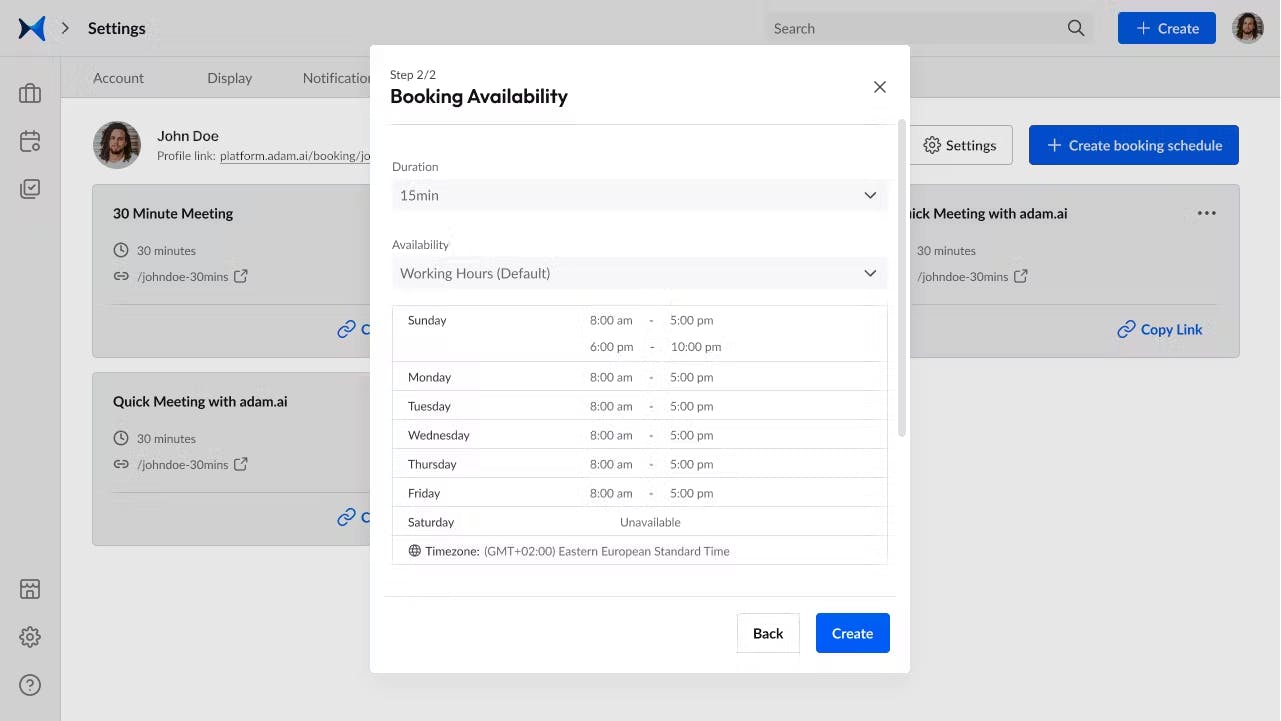
2. Record agenda items, actions, polls, decisions, and notes using a smart note-taking system displayed side by side with the built-in video-conferencing feature for enhanced collaboration and productivity, with the ability to integrate with popular video-conferencing tools you're familiar with.
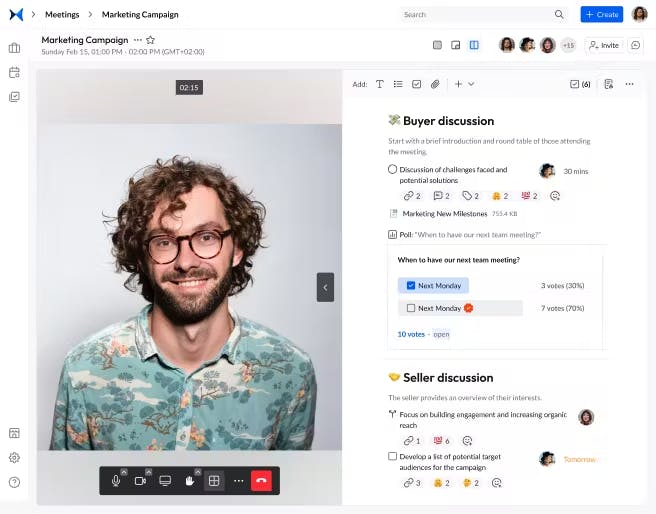
3. Choose a customizable meeting agenda template from our gallery to kickstart preparation for your meetings for maximum productivity.

4. Track your actions to ensure task ownership and accountability and improve decision-making with a powerful follow-up system and the ability to search for actions across all meetings.
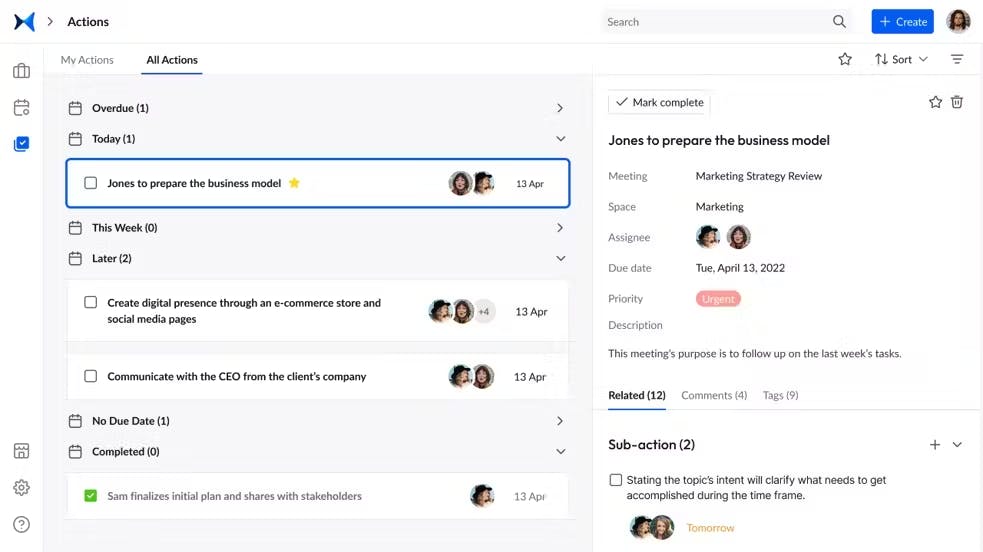
5. Categorize meetings into spaces, including project, team, board, and committee, and have all their content under a specific umbrella for easy access.
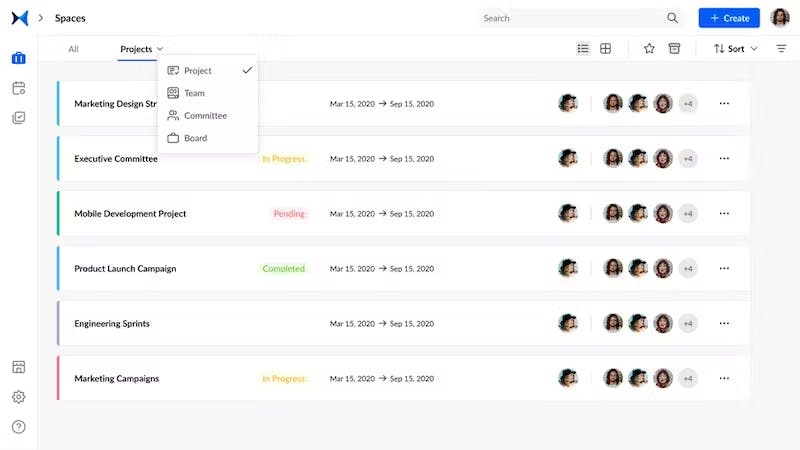
6. Generate and share meeting minutes for due diligence and to keep a record for future reference.

7. Ask Adam the AI Assistant to generate meeting transcripts, enhance your meeting content, suggest agendas, and highlight action items and key insights.
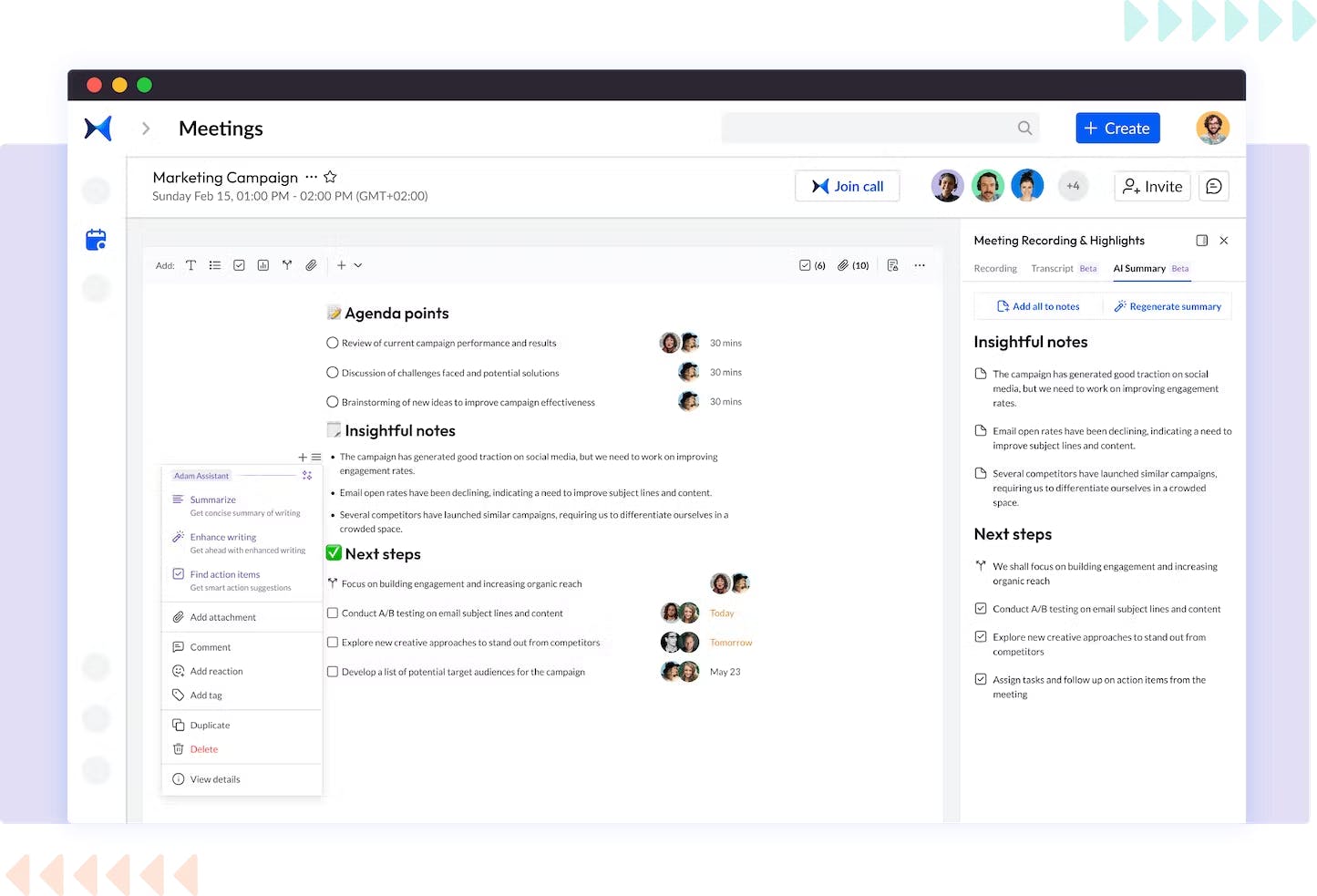
Get started right now to experience the true meaning of all-in-one meeting management.
The bottom line
To wrap up, the Chatham House Rule remains a crucial element in the facilitation of candid and productive discussions in various professional contexts. By understanding and implementing the Chatham House Rule, organizations can foster an environment of trust and open dialogue, crucial for addressing complex issues and driving meaningful progress.
This progress can only be made easier and more efficient using an all-in-one meeting management platform, like adam.ai, that empowers you to run your business like clockwork through effective meetings.
And while there may be multiple meeting management solutions available, here is why adam.ai is the all-in-one meeting management platform you can trust:
- adam.ai is one of Atlassian Ventures' portfolio companies.
- In the meeting management software category on G2, adam.ai has been ranked a leader and a high performer for successive quarters in the past years.
- adam.ai has been included in the Forrester Report in the AI-enabled meeting technology landscape.
- adam.ai is trusted and used by powerful teams and organizations worldwide for all types of critical meetings, like board, committee, project management, and business development meetings.
- And most importantly, adam.ai integrates with your existing workflow, is SOC2 compliant, provides dedicated support and success, and has a free trial option.
About the author ...
Shaimaa Badawi is an Inbound Marketing Specialist at adam.ai. Her research revolves around meeting management, project management, and board meetings, where she identifies the most daunting meeting pain points that C-level executives, board and committee members, corporate secretaries, and other professionals working in enterprises face in meetings. Based on her findings, Shaimaa provides solutions for inefficient meetings, defines various aspects of corporate-level meetings, and outlines best practices on how to run effective meetings.
Recommended for you

Filing Articles of Incorporation: Why Your Business Needs It
Read now
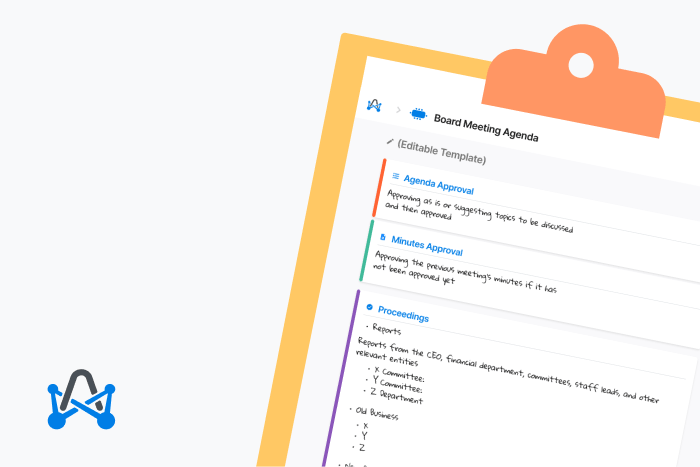
Editable Board Meeting Agenda Template (+ Best Practices)
Read now

Tackling Strategic Risk as a C-Level Executive
Read now
Subscribe to our blog
Subscribe to our blog
Get the latest blog posts sent straight to your inbox.
